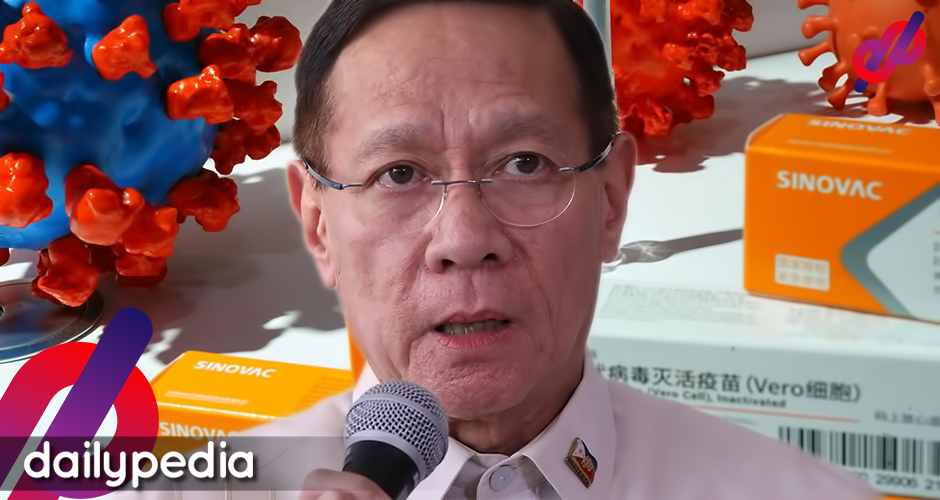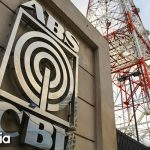The Food and Drug Administration (FDA) has given the public more questions than answers after approving a Chinese-made COVID-19 vaccine for emergency use.

Announced during Malacañang’s daily press briefing Laging Handa today, FDA Director General Eric Domingo said they just approved Sinovac’s emergency use authority (EUA).
Domingo, however, stressed that Sinovac should not be used on healthcare workers because “it has an efficacy of 50.4% on in this group.”
This is because they are exposed to COVID-19 patients more than the average person.
Sinovac is also not recommended for anyone who is not clinically healthy and not between the ages of 18 and 59 years old—making it not suitable for children and senior citizens.
This has left netizens scratching their heads, asking why the FDA approved Sinovac for emergency use yet did not recommend it for healthcare workers, the same people trained to administer the vaccine in the first place.
https://twitter.com/miamagdalena/status/1363707648516919308
https://twitter.com/randomtorregosa/status/1363709414826340355
Sinovac is not recommended for health workers. Why would anyone else want a jab of that? Basura. This admin really wants to kill us. https://t.co/ohxkqcMDth
— Leah Navarro (@leahnavarro) February 22, 2021
https://twitter.com/mythosgabriel/status/1363714372472692741
Some netizens have recommended that Duterte’s cabinet secretaries be first in line for Sinovac inoculation—which happens to include health secretary Francisco Duque III.
Since Sinovac is not recommended for healthworkers, Duterte cabinet secretaries should be the first to get the vaccine. https://t.co/2AoBzJ4lGb
— Info Ops (@infopsph) February 22, 2021
It also brought questions about the faith Filipinos had—or did not have—in vaccines, stemming from the Dengvaxia vaccine scare.
https://twitter.com/mythosgabriel/status/1363714372472692741
The befuddlement of netizens has gotten to a point that the word Sinovac is still trending on Twitter Philippines, with over 17,000 tweets—including the now-compulsory Kris Aquino meme.
https://twitter.com/88doubledragon/status/1363741028532977667
The FDA approval has even reached the halls of the Senate, with two senators being just as puzzled at their decision to issue an EUA for Sinovac.
In an article published on Inquirer.net, Senators Ping Lacson and Kiko Pangilinan have questioned FDA’s approval of Sinovac.
“This raises more questions and issues than what the IATF is already busy grappling with,” said Lacson in a message to reporters. He likened it to a “chef who refuses to eat the food he cooked and (sic) which his restaurant-employer serves to the customers.”
He also said that it will prove hard for a healthcare worker to convince someone to get the Sinovac vaccine as they themselves have been discouraged by the government to use it.
Pangilinan, for his part, asked if the decision is based on science. “What kind of government policy is this? Is it science-based to say that a vaccine isn’t recommended for health workers and yet can be recommended for police and military personnel?”
Malacañang: It’s okay with us
Malacañang, however, insists that the vaccine is safe for the public as it is “accepted by standards arrived at by the World Health Organization (WHO) itself.”
Roque on Sinovac vaccines: It is not a low quality vaccine,. It is accepted by standards arrived at by the WHO itself. | @alexisbromero
LIVE: https://t.co/f1ai2sAPnj
— The Philippine Star (@PhilippineStar) February 22, 2021
Recent documents from the WHO, however, would say otherwise, as Sinovac has yet to receive an assessment from the WHO.
The Palace’s confidence in CoronaVac, the official name of Sinovac’s COVID-19 vaccine, might come from vaccine trials in Brazil. An article from Reuters has claimed it works on the more active UK and South African variants.
Sinovac vaccine works on UK, South African variants – Brazil institute https://t.co/XW1BkVbtHr pic.twitter.com/DMa9bVjdOW
— Reuters (@Reuters) February 17, 2021
Experts from Brazil also await its effectiveness on the Brazil variant.
Malacañang is also considering revisions to its priority list, as Sinovac vaccines will be available ahead of the more popular Pfizer and AztraZeneca vaccines.
Pres'l Spox Harry Roque: Gov't may revise priority list for COVID-19 vaccination because Sinovac is not recommended for healthcare workers; military may be first, then frontline healthcare workers, and poor. | via @Joseph_Morong
— GMA Integrated News Breaking (@gmanewsbreaking) February 22, 2021
Sinovac’s limitations have also meant that it will not be used on President Rodrigo Duterte, who will turn 76 in March.


